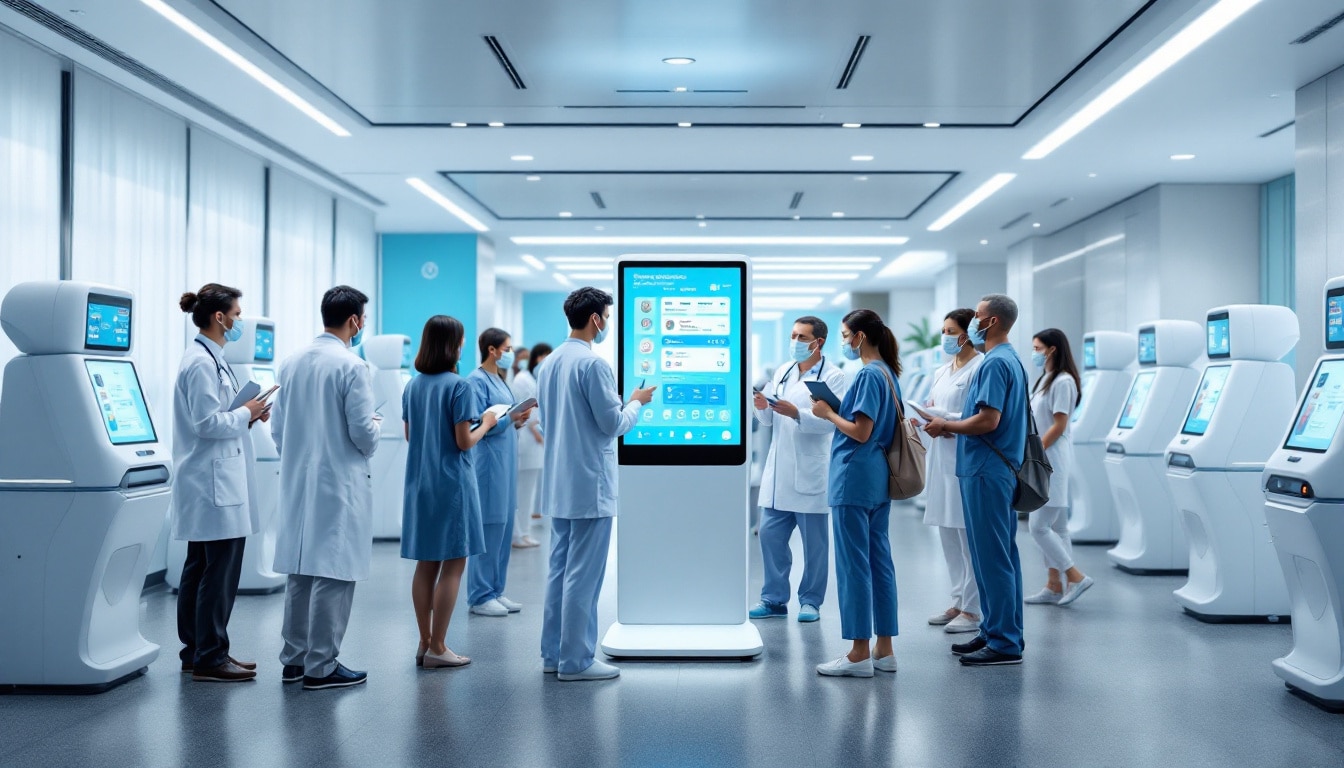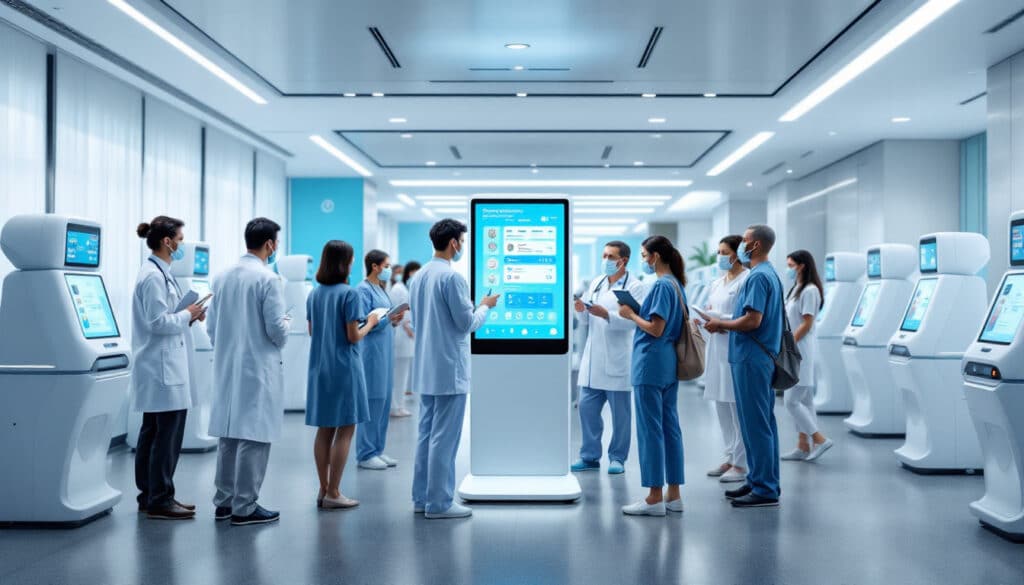Imagine a world where every medical appointment is facilitated by cutting-edge technology, where patients can access their medical records with one click and receive remote consultations without leaving their home. There digital health has already begun this transformation, presenting itself as a technological revolution in the service of medicine. Innovations, ranging from telemedicine to health monitoring applications, are changing the way we interact with healthcare.
This advancement is based on a convergence of modern technologies such as artificial intelligence, robotics and biotechnology, which redefine care pathways. Thanks to these tools, healthcare professionals benefit from instant access to valuable information, thus improving the quality of care and the patient-doctor relationship. At the same time, the generalization of connected devices and management platforms medical data offers patients an active role in managing their health. The rapidly evolving medical landscape invites us to explore the multiple facets of this digital innovation and its structural implications for the medicine of tomorrow.
There digital health represents a real technological revolution which is transforming the contemporary medical landscape. Incorporating advances in telemedicine, ofartificial intelligence, and biotechnology, it improves access to care, optimizes the management of chronic diseases and enriches our understanding of health data. Through judiciously orchestrated use, these technologies are changing our relationship with health.
New technologies: a lever of innovation for care
Research shows that by 2023, more than 80% of hospitals in the United States will integrate digital health solutions, creating bridges between patients and healthcare professionals. These technological tools come in various forms. There telemedicine, for example, has exploded during the COVID-19 pandemic. A study revealing that virtual consultations increased by 154% in 2020 demonstrates this trend. In France, platforms have been set up to allow patients to access specialist doctors without having to travel, thus facilitating the monitoring of complex illnesses.
Wearable devices, such as smartwatches, also play a key role in real-time monitoring of vital health indicators ranging from heart rate to oxygen saturation. Likewise, the mobile health apps allow users to manage their daily health, whether for food monitoring, physical activity or stress management. With more than 300,000 medical apps available across all major platforms, digital health facilitates unprecedented access to medical information and services.
Artificial intelligence in the healthcare sector: opportunities and challenges
The impact of theartificial intelligence (AI) in healthcare is both promising and complex. AI algorithms, capable of analyzing considerable volumes of medical data, enable faster and more accurate diagnoses. A McKinsey study reveals that implementing AI in healthcare could increase physician productivity by 20 to 40%. This represents a real advantage, particularly in the early detection of diseases such as cancer, where rapid diagnosis can significantly influence the patient’s prognosis.
However, notable challenges arise with the adoption of these technologies, particularly around data protection and ethics. In 2021, a survey conducted by Harris Poll found that 83% of patients are concerned about the privacy of their health data when it is processed by AI systems. This is why it becomes essential to develop appropriate regulations guaranteeing the protection of personal data while taking advantage of the advantages that AI can bring.
Towards a more humane medicine thanks to digital health
Despite concerns raised about the possible dehumanization of care, digital health can also strengthen the human dimension of medicine. Platforms of telemedicine allow more frequent and personalized follow-ups, offering unprecedented proximity between doctors and patients. For example, studies have shown that patients with chronic illnesses using telemedicine show better adherence to treatments and higher overall satisfaction with their care.
In addition, by integrating patients into the decision-making process using health education tools, digital health promotes a collaborative approach. By providing them with appropriate educational resources, individuals can better understand their condition and become informed stakeholders in their health. This could transform our conception of medical monitoring, by making the doctor-patient relationship more supportive and interactive.
Digital health thus offers a multitude of innovative opportunities which select and highlight solutions tailored to meet the contemporary challenges of the sector.” With a promising future, the evolution of digital health will require an equitable, inclusive and adapted approach, ensuring that every individual can benefit from these advances.

#MonEspaceSanté a déjà deux ans : cet outil fait désormais partie du quotidien des français avec 11 millions de comptes activés, 300 000 personnes qui s’y connectent chaque semaine, et 250M de documents alimentés par les professionnels de santé.
— Thomas Fatôme (@ThomasFatome) March 1, 2024
Une belle dynamique à poursuivre! https://t.co/V5PsXzCRN3













